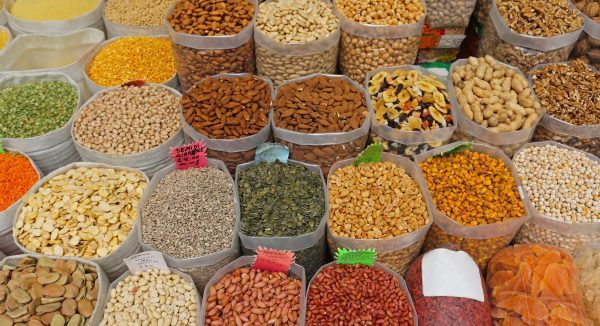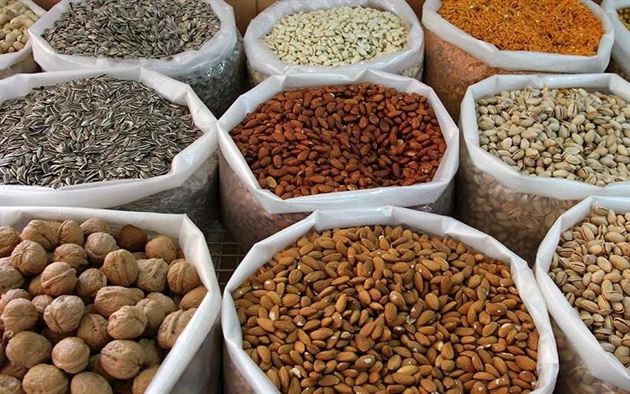How to Export Nigerian Agricultural Products for Maximum Profit

Nigeria, blessed with vast arable land and a favorable climate, is a powerhouse in agricultural production. However, despite its rich resources, many agripreneurs struggle to tap into the lucrative international market. Exporting agricultural products can be a highly profitable venture if approached strategically. This comprehensive guide will take you through the step-by-step process of exporting Nigerian agricultural products for maximum profit.
Step 1: Research and Identify Profitable Agricultural Products
High-Demand Nigerian Agricultural Products
To maximize profit, it is crucial to focus on products that are in high demand internationally. Some of the most sought-after Nigerian agricultural exports include:
- Sesame seeds
- Cocoa beans
- Cashew nuts
- Palm oil
- Ginger
- Yam
- Shea butter
- Soybeans
- Hibiscus flower
- Charcoal
Market Research and Trends
Conduct thorough research to understand global demand, pricing trends, and potential buyers. Useful resources include:
- Trade agencies like the Nigerian Export Promotion Council (NEPC)
- Marketplaces such as Alibaba and ExportHub
- International trade fairs
- Industry reports and trade publications
Step 2: Register Your Export Business
Business Registration
To legally export agricultural products, you must register your business with relevant government agencies:
- Corporate Affairs Commission (CAC): Register your business as an enterprise or limited liability company.
- Nigerian Export Promotion Council (NEPC): Obtain an export license to enable participation in international trade.
- Standards Organisation of Nigeria (SON) & NAFDAC: Ensure compliance with quality and safety standards.
Tax Identification Number (TIN)
Get a TIN from the Federal Inland Revenue Service (FIRS) to comply with tax regulations.
Step 3: Source and Process Quality Agricultural Products
Finding Reliable Suppliers
Quality is crucial for exports. Source from reputable farmers and cooperatives. Partnering with agricultural associations can also ensure steady supply.
READ MORE: How to Make Money from Bamboo Farming in Nigeria: A Step-by-Step Guide
Processing and Packaging
Many international markets have strict requirements for product quality and packaging. Invest in:
- Sorting and grading to ensure uniformity.
- Drying and preservation techniques to extend shelf life.
- Attractive and durable packaging that meets international standards.
Step 4: Understand Export Documentation and Regulations
Key Export Documents
To successfully export your goods, you need:
- Export License (from NEPC)
- Certificate of Origin
- Commercial Invoice and Packing List
- Bill of Lading or Airway Bill
- Phytosanitary Certificate (for plant-based products)
- SONCAP Certificate (for regulated products)
Compliance with Destination Country Regulations
Each country has specific import regulations. Research the requirements of your target market, including:
- Import duties
- Quality standards
- Labeling requirements
Step 5: Find Buyers and Market Your Products
Online Marketplaces and Direct Sales
To connect with international buyers, leverage:
- B2B Platforms: Alibaba, ExportHub, TradeKey
- Social Media: LinkedIn, Instagram, and Facebook
- Company Website: Build a professional site showcasing your products
Trade Fairs and Networking
Attend international trade fairs like the Gulfood Expo, SIAL Paris, and Anuga Food Fair to meet potential buyers.
Step 6: Arrange Logistics and Shipping
Choosing a Shipping Method
Consider factors like cost, delivery time, and product type:
- Air Freight: Fast but expensive, suitable for perishable goods.
- Sea Freight: Cost-effective for bulk shipments but slower.
Work with Reliable Freight Forwarders
Partner with experienced freight forwarders to handle:
- Customs clearance
- Documentation
- Shipping arrangements
Step 7: Payment and Financial Considerations

- How to Export Nigerian Agricultural Products for Maximum Profit
Secure Payments
To avoid fraud, use secure payment methods:
- Letter of Credit (LC): Ensures secure transactions.
- Escrow Services: Holds funds until both parties meet obligations.
- Bank Transfers: Secure but verify buyer authenticity.
Export Financing Options
If you need capital to scale, consider:
- Bank of Industry (BOI) export financing
- NEPC Export Development Fund
- SME loans from commercial banks
Step 8: Optimize for Maximum Profitability
Cost Reduction Strategies
- Bulk purchasing of raw materials to lower costs.
- Efficient logistics planning to minimize transportation expenses.
- Value addition by processing raw products into finished goods.
Customer Relationship Management
Building long-term relationships with buyers ensures continuous sales. Maintain:
- Excellent customer service
- Timely delivery
- Consistent product quality
Review and Visibility Income
Challenges in Exporting Agricultural Products
While the export business is lucrative, challenges include:
- Bureaucratic bottlenecks
- Inconsistent supply chains
- Foreign exchange fluctuations
- Quality control issues
Success Stories
Many Nigerian exporters have successfully entered global markets. Research case studies and testimonials from successful agripreneurs to learn from their experiences.
Conclusion
Exporting Nigerian agricultural products is a profitable venture when approached with the right knowledge and strategies. By following this step-by-step guide, you can position your business for success and tap into the global market.
What are your thoughts on agricultural exports? Do you have any experiences to share? Leave a comment below and let’s discuss!

Leave your comment